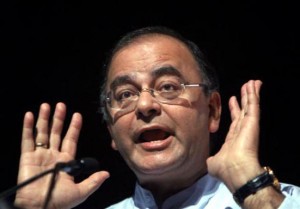Modi encourages large investments in modernizing India
Saturday, July 12th, 2014 2:31:49 by Maleeha Tareen
Two months after winning the elections in India with the largest parliamentary support of the past 30 years, the government of Narendra Modi on Thursday presented his first budget to Parliament, a project that is far from the great expectations created himself Executive but proposed to the third largest economy in Asia lead to the growth levels of neighboring China and overcome as well, the “price of democracy” that some attribute the difference in growth.
“This is just the beginning of a journey that will lead to sustained growth of 7% or 8%, or even beyond, in the next three years,” said Finance Minister Arun Jaitley, in Parliament, reports Reuters. India grew by 4.7 % last year and the new budget expected to do 5.9 % this year.
The task will not be easy. India’s growth has been far from near double-digit rates exhibited by China in the last decade. In addition, cuts in recent years have, in many cases, at the expense of investment and that, according to analysts at Barclays Capital, “will have negative effects on the potential for long-term growth” of the country. But it is a necessary goal. Only those levels of growth the country will be able to create enough jobs for the 13 million new workers annually entering the labor market.
The goal is difficult but not impossible, according to analysts, if Modi promised reforms and infrastructure investment program, which began Thursday. “An essential ingredient is the revitalization of investment, greater foreign capital inflows and stronger exports,” indicated the direction of the Institute of International Finance (IIF) in a recent open letter to the new government. With these rods, said the umbrella organization of the leading private banks in the world, India may reach a rate of 6 % in 2015 and 7% in 2016.
The market reacted with increases to the budget presentation, despite the initial disappointment to know that the executive does not undertake any radical change on the expenditure items where subsidies only represent 2% of GDP. But the commitment that the minister Jaitley meet the deficit target of 4.1% set by the previous government did change the mood of investors. “As hard as it may seem, I’ve decided to take this goal as a challenge” and gradually bring the budget gap to 3% of GDP by 2017. “We can not leave a huge legacy of debt to future generations,” he concluded.
“The new Government of India has taken a harder line than expected in its first budget,” emphasized Mark Williams of Capital Economics, in a note to clients. “Given that the deficit has reached nearly half the expected for the full fiscal year deficit, achieving that goal will be difficult.” Moreover, Williams criticizes the lack of structural reforms in the budget and says that ” if Modi wants to keep the excitement now wakes up in the market, that will have to change.”
To that end some of the measures are included in the budget. Jaitley announced plans to boost Special Economic Zones throughout the country and encourage investments 300,000 million (up 13%) to build highways, power plants, ports and airports. Also, open the defense sectors and secure greater participation of foreign capital. But no sign of the promised tax reform and measures to boost revenue fund announced achieve infrastructure plans.
The budget also includes a game at least bizarre, like $33 million to finance the construction of the largest statue in the world, in honor of one of the founding fathers of the country, Sardar Vallabhbhai Patel, a personal commitment of Modi in his home state of Gujarat. The reviews on the social networks were exacerbated to see that this amount is the same as the Government intended to ensure the safety of women in a country plagued by acts of violence, and that equals twice the resources allocated to promote the education of girls.
“If we leave aside the noise, ratifying the deficit target and focus on modernization of the monetary and financial system seem very important performances addressed by the new government,” says Vivek Dehejia, professor of Economics at the University Carleton, Canada. Dehejia emphasizes that also in just two months, the government has adopted measures to boost investment in railways, the functioning of financial markets, prepared a map on the country’s energy needs and changes in agricultural insurance.
Tags: Arun Jaitley, India, India Finance Minister, Indian budget, Narendra ModiShort URL: https://www.newspakistan.pk/?p=46270

















